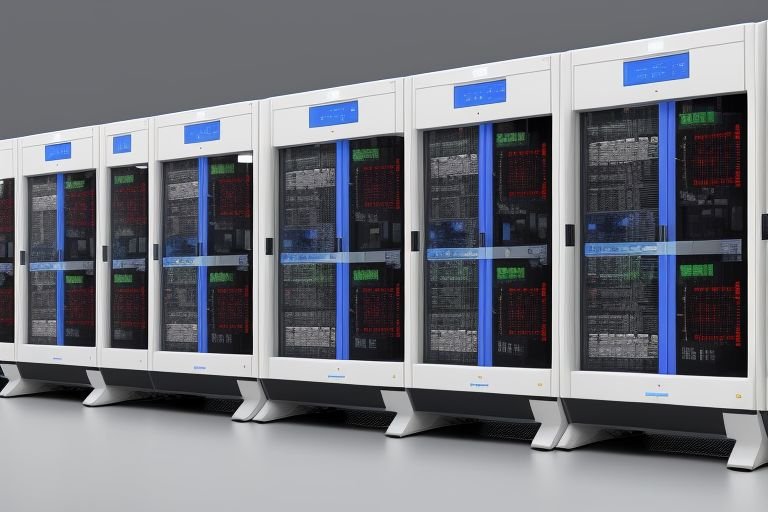Japan has unveiled its plan to build the first ‘zeta-class’ supercomputer to keep the nation ahead in AI and computing. This has an estimated capital cost in excess of $ 750 million is planned to start construction in 2025 and to be operational in 2030. This next generation supercomputer is expected to run at a speed one thousand times faster than the current leading supercomputer, which is a large break from previous technologies.
The announcement comes as countries around the world compete to create more powerful ‘supercomputers’ for use in such areas as artificial intelligence, climate modeling and drug development. It is regarded as a favorable strategy for Japan to continue as a pioneer for technological developments and influence the growth of the field within the most innovative one at the moment – AI.
The specific application that the zeta-class supercomputer will be excelled at is the ability to perform simulations and analysis on vast amounts of data. They believe it will boost the work in multiple scientific fields such as material science, quantum computing and even space travel. The machine will also contribute significantly in improving Japan capabilities in accurate weather and disaster prediction and in national applications.
However, one of the most important problems with such a great development of such a powerful supercomputer denotes the issue of energy consumption. To mitigate the environmental effect of the system, the Japanese researchers are concentrating on new cooling methods and energy conserving structures for the refrigerator. The nature of the project is to unveil new trends in the sphere of sustainable HPC, and thus potentially – define future supercomputers’ general outlines on an international level.
Furute development of the zeta-class supercomputer, it was suggested that there will be integration between the academic, industrial and government organizations in Japan. It is to be used to support collaborative research programs thereby creating future interest in partnering with Japan and hence, strengthening its position in the tech field.
However, there are some issues that would limit the project such as some issues such as supply chain risks and the requirement of complex semiconductor technologies. Japan is trying to increase local production of chips and finalize cooperation with the world’s most advanced firms to consistently supply it with superior components for the supercomputer.
The announcement has appeared in scientific circles, and scientists are looking forward to the apps that such a powerful compute can open up now. From deciphering the mysteries of the cosmos to creating new forms of matter particle by particle, Wright’s zeta-class supercomputer is likely to revolutionise research in science.
Such an aggressive project is under implementation in Japan while the country invests in education and training for the generation of scientific brains that will be able to fully exploit such high powered and sophisticated systems of computing. Our universities across the country are modifying the curriculum to ensure more students take courses in high-performance computing and AI in order to nurture a talent pool to support its high-tech goals.
As a part of the national project, the zeta-class supercomputer plays a role in the simultaneous revival of Japan’s tech business and economy. As it promotes the 6th industrial revolution initiatives such as AI, quantum computing, and biotechnology among others, Japan seeks to build new economic frontiers for growth, employment, solving social problems including aged population and environmental conservation.
It is possible to expect some criticism of the project as for the cost of implementing it and possible benefits. Skeptics might wonder how such a huge amount of money could be given to a single system allowing for technological development to erode it almost instantly. But, the supporter of this theory claims that the externality factor in view of technology development and economic benefits will surpass the cost.
Japan’s zeta-class supercomputer has many implications for other countries around the world. It will have the potential of altering the software vendor paradigm in high-performance calculating possibly upsetting the applecart for other leading technology corporations in the sector. Since more and more countries consider technological superiority as national interest, the Japanese initiative may lead to similar actions around the world and a harder international competition for computational advantages.


